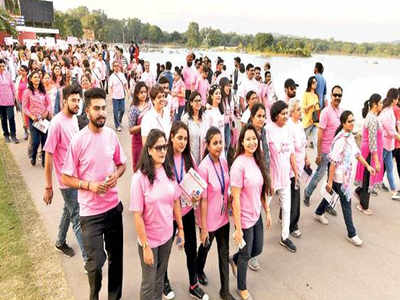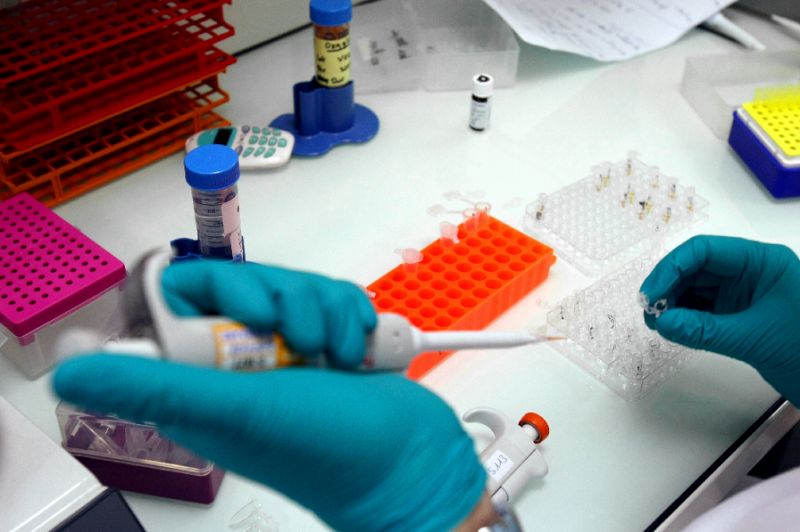New Delhi|Ekta
In the coming week on 23rd July the full budget of Modi’s 3.0 government will be announce.Leaders from health and pharma sector share their expectations from up-coming Budget. Research, innovations, strengthening PPP model are some areas where they expect impactful decision from the government. We are sharing some of their views here:
Mr. Sudarshan Jain, Secretary General, Indian Pharmaceutical Alliance: Indian pharmaceutical industry has been instrumental in shaping global health outcomes by providing affordable, quality medicines. The industry is now at a pivotal moment, with an aspiration to grow to USD 120 billion by 2030. The policy direction should leverage the industry’s knowledge-driven foundation and the status as a global manufacturing hub. The thrust should be on Quality and Innovation. Given the high risk, lengthy development periods, and low success rates in research, continuous investment is crucial. The 2024-25 budget should introduce policies that provide direct and indirect tax benefits to encourage research and investment in becoming global benchmark in quality
Ameera Shah, Executive Chairperson & Director, Metropolis Healthcare Limited: The diagnostics sector, vital for early disease detection and treatment customization, is crucial in India’s growth. We urge the new government to prioritize optimizing Public-Private Partnership (PPP) models to ensure high-quality, positive, and impactful outcomes. Increased funding for screening and diagnostic programs targeting Non-Communicable Diseases (NCDs) such as cancer and cardiac ailments is essential. Investing in training for doctors, nurses, and allied healthcare workers will further elevate the quality of care.
Implementing a 0% GST on diagnostic services and facilitating refunds for GST paid on input tax credits can reduce costs and improve accessibility. Lowering customs duty on imported diagnostic equipment and adjusting high GST rates on lab supplies will enhance efficiencies and foster R&D investments. These measures will significantly contribute to our shared goal of providing accessible, high-quality healthcare for all. We look forward to collaborating with the government to address these priorities and ensure the continued growth and improvement of India’s healthcare sector.
Dr Ashutosh Raghuvanshi, MD and CEO, Fortis Healthcare: While the interim budget introduced several initiatives, the upcoming budget should prioritize healthcare infrastructure by increasing GDP spending to 2.5%. We urge the government to designate healthcare as a national priority and implement transformative measures to establish India as a global healthcare powerhouse. The sector currently faces challenges such as a shortage of skilled workforce, indirect taxation issues, and unused Minimum Alternate Tax (MAT) credit. To ensure sustained and accelerated growth, policies conducive to private sector investment must be focused upon. The government should strengthen public-private partnerships by introducing new models and policies to boost the adoption of digital healthcare services and promote medical value travel. This can be achieved by facilitating international insurance recognition for Indian healthcare providers to attract more international patients.
Anubha Taneja Mukherjee Member Secretary, Thalassemia Patients Advocacy Group: As of now, only a few iron chelators, Deferoxamine and Deferiprone, for thalassemia patients currently fall under the 5% GST slab. Even though we are incredibly grateful for a reduced GST slab on these drugs, the reduced GST slab is not considerably benefiting Thalassemia patients as there are other life-saving drugs and equipment that are needed lifelong by Thalassemia patients. These fall under a higher GST slab of 12%. Furthermore, the recent introduction of the new tax regime has taken away the relative advantage of additional tax relief provided under Section 80U for Persons with Disability (PwD), including Thalassemia, which incur exorbitant expenditure on their treatment and are at a disadvantage in society concerning opportunities. We wish to draw attention to the need for a GST reduction or waiver as appropriate on the below-mentioned life-saving drugs and equipment related to thalassemia treatment, such that the cost of treatment is kept at a minimum. This measure would significantly ease the financial strain on thalassemia patients, ensuring uninterrupted access to essential blood transfusion treatments.
Mr. Himanshu Sikka, Project Director, SAMRIDH, Chief Strategy & Diversification Officer, IPE Global: As global temperatures continue to rise, India faces an imminent surge in public health challenges that will exert unprecedented pressure on our already strained healthcare system. Heatwaves, becoming more frequent and intense, not only significantly reduce productivity but also pose life-threatening risks such as heat strokes. The warming climate, coupled with increased flooding and rising sea levels, is altering the transmission patterns of various infectious diseases. Vector-borne illnesses like dengue and malaria are expanding their geographical reach, while water-borne diseases are seeing more frequent outbreaks in flood-affected areas. Furthermore, the impact on agriculture due to changing weather patterns threatens food security and nutrition, potentially increasing rates of malnutrition and related health issues.
With only 30% of medical resources available to over half the population residing in rural areas, we stand at the tipping point. There’s an urgent need to propel digital health infrastructure in these underserved regions to maximize coverage and ensure utmost support to the existing facilities. While increasing government healthcare spending is imperative, it alone is insufficient. The need of the hour is to attract private players and commercial capital to the sector, bridging existing gaps in areas where low-profit margins deter private service providers. The government must, therefore, chart the course for blended and innovative finance mechanisms to catalyze investments in healthcare. By strategically unlocking avenues for innovative finance, the government can drive sustainable innovation and lay a solid foundation for resilient, low-emitting, and adaptive healthcare infrastructure capable of withstanding future climate shocks. With decisive action now, universal health coverage may well be within reach.
Earlier this week in an interview with ANI media Dr.Harsh Mahajan Chair of FICCI Health Services Committee & Director of Mahajan Imaging & labs demanded government should fulfil it’s promise of spending 2.5 pc of GDP on healthcare sector.










